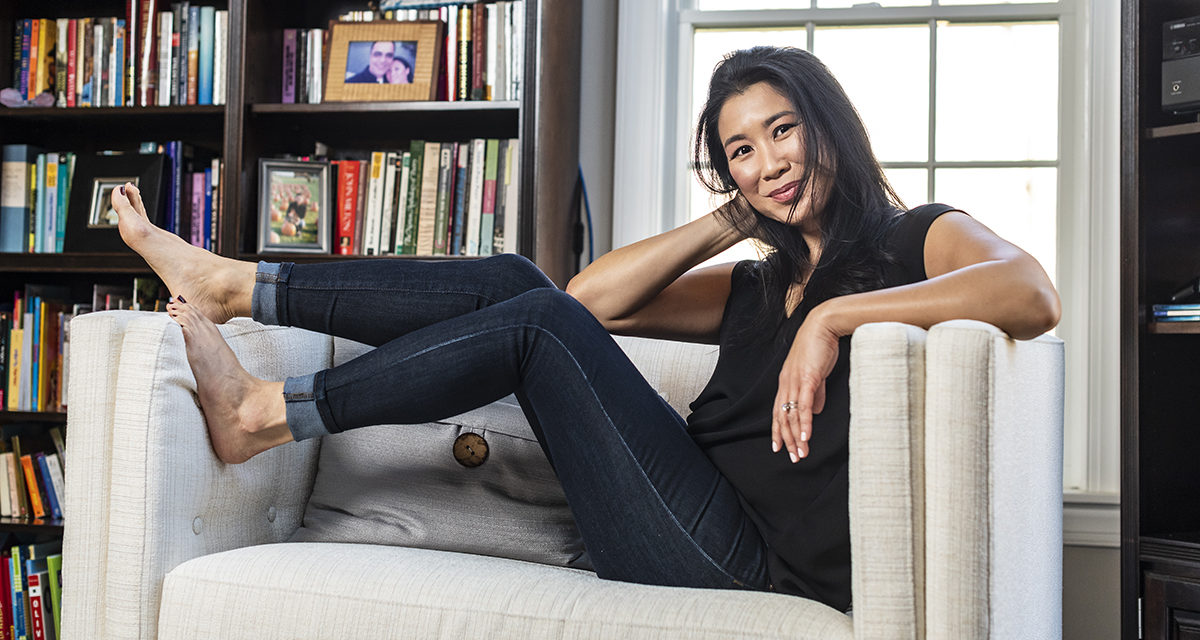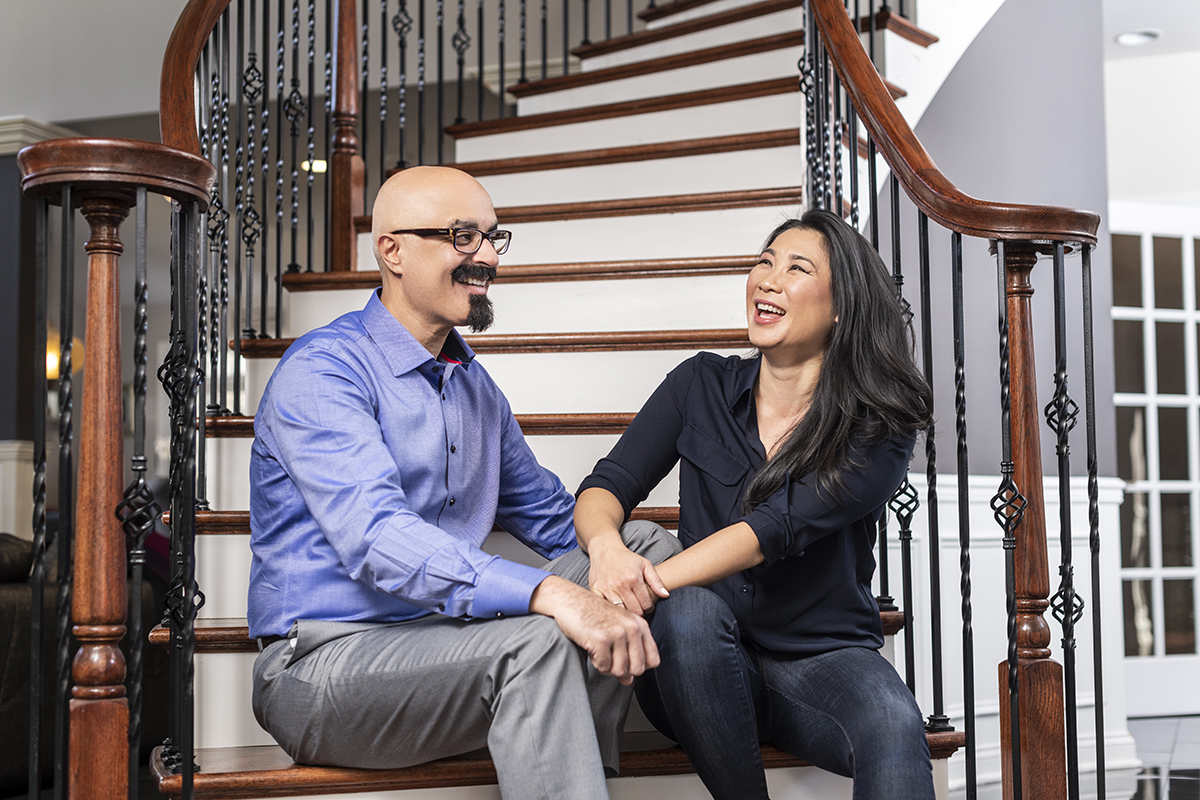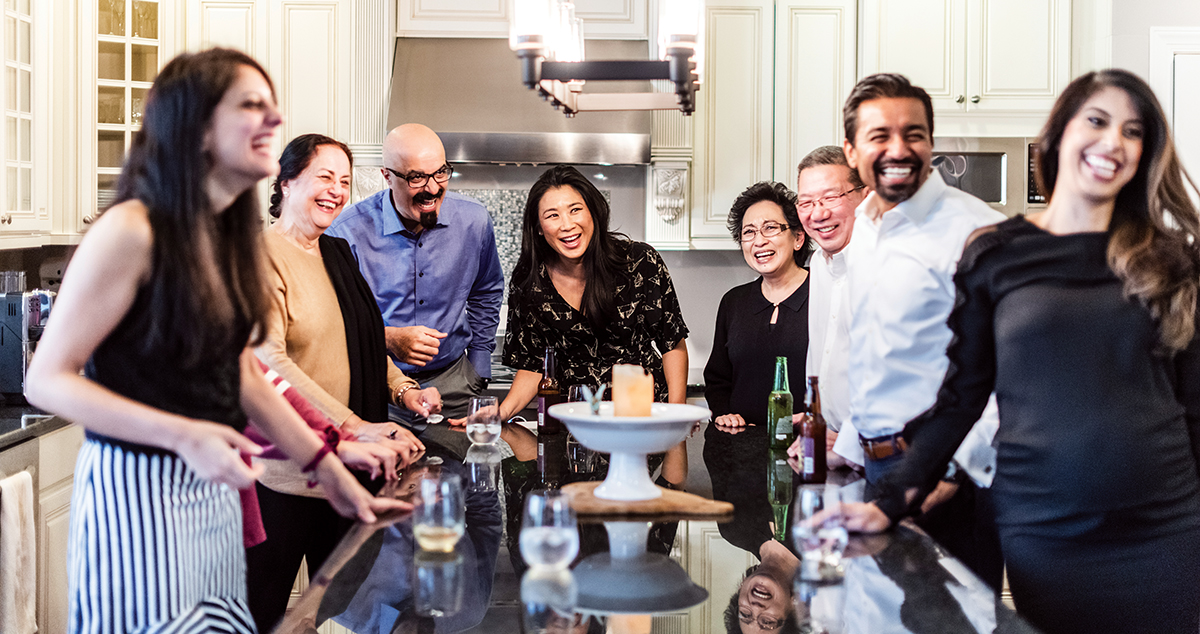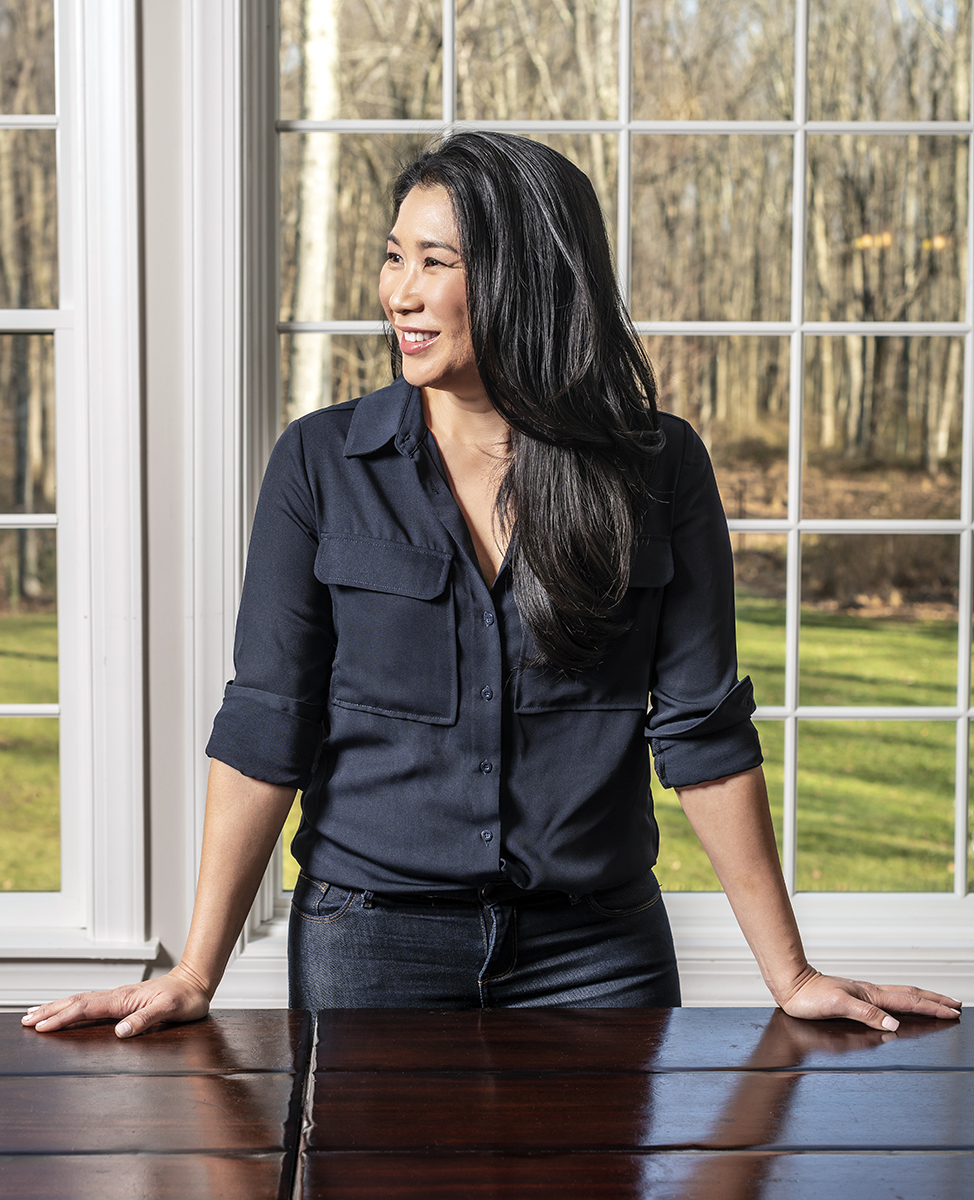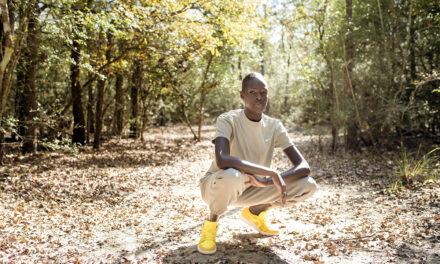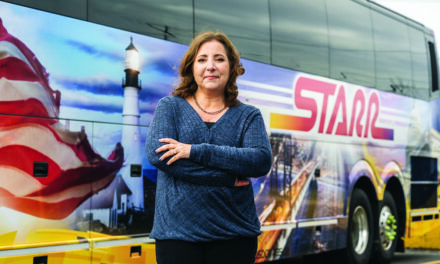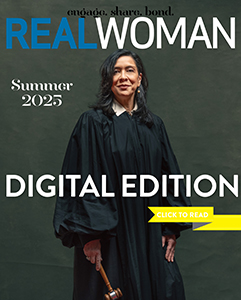Despite growing up as an only child, slightly unmoored from her parents’ Chinese culture and not quite fitting in as an American, Michelle Bajwa charted her own course as a daughter, a wife, a mother, and a businesswoman.
Michelle Bajwa is excellent at reading body language, a skill learned out of necessity from a very young age. Born in the Bronx in 1975, she grew up in the 70s and 80s as the only child to Chinese parents who first met in an English as a second language class after immigrating to the United States from the Philippines and Taiwan.
Not wanting their daughter to experience the alienation and bigotry that her father, in particular, had encountered on his journey to America, her parents made the conscious decision to teach her English exclusively, despite the fact that they spoke to each other in three to four dialects of Chinese. “He didn’t want me to grow up with an accent and be mocked. It was the backdrop to a lot of my childhood, where I really couldn’t understand what was happening,” says Bajwa, 43. “I always felt like I had a duality of identity—not quite American enough and not quite Chinese enough. Not speaking Chinese, feeling a little out of place, I learned how to be a translator of things. When you can’t speak the language fully, you learn to read body language and you become aware of the emotional energy in the room.”
When Bajwa was 7, her family moved to Howell, NJ, which was predominantly white at the time, and she was the only Chinese person in the entire school. “I would go home, and the food would be Chinese. I would look in the mirror and be Chinese. My family is Chinese. But I didn’t speak the language, so I felt distinctly different. I was an only child and the only Chinese person at school.”
While that was a confusing time for Bajwa, 4 years later the family moved again, this time to West Windsor, NJ, a much more ethnically diverse part of New Jersey, which exposed her to new things and helped her feel less out of place. For the first time in her awareness, she was surrounded by South Asian, Sikh, Indian, Iraqi, Iranian, and Pakistani Americans. “I learned to embrace other cultures. I felt part of a bigger whole for the first time in my life,” she says.
During her senior year of high school, she grew close to Rashaad Bajwa, a Pakistani American who shared her interests and ambition, and the two both attended Rutgers University the next year. And that’s when her life truly became her own.
I would go home, and the food would be Chinese. I would look in the mirror and be Chinese. My family is Chinese. But I didn’t speak the language, so I felt distinctly different. I was an only child and the only Chinese person at school.
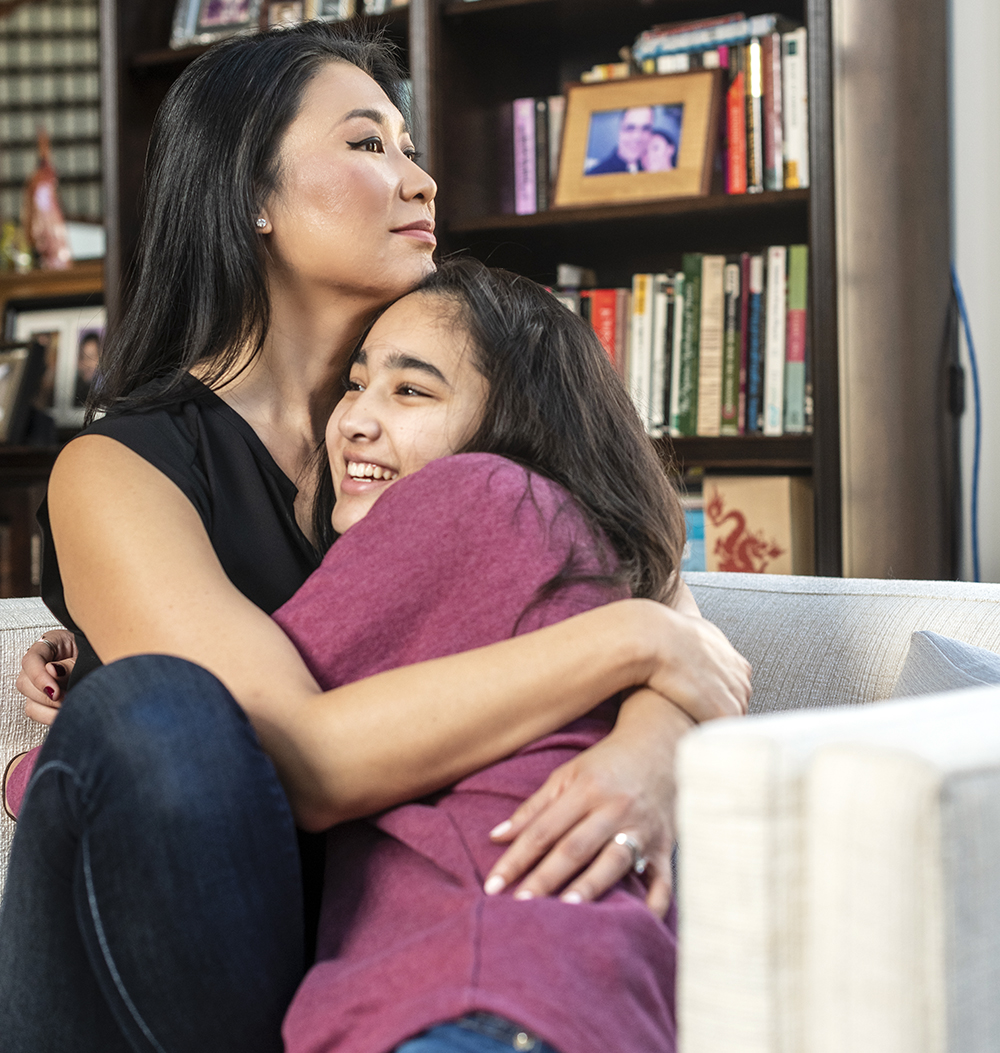
Whiz Kids
Bajwa’s parents expressed a strong desire for her to pursue a degree in medicine or science, but she recognized almost immediately it wasn’t the right path for her. “My parents pounded it into my head that I should become a scientist of some kind, whether it be a geneticist, a chemist, or a medical doctor. In their minds, that’s how you became successful in America,” she explains. “But I was terrible at math, and I wasn’t motivated by it. I had grown up writing poetry and reading books. That’s really where my passion was.”
Bajwa knew she needed to recalibrate, and she found the courage to tell her parents she wanted to switch to studying English, not knowing whether or not they’d support her choice. “I told my parents I wanted to pursue an English degree, and they thought I had lost my mind. Uncles and aunts called me and tried to talk me out of my decision. But I had this inner drive, and I told them I have to be able to wake up in the morning and find my own path. I need to have a passion for it. I can’t wake up every day and do something I don’t love.”
During her junior year in the late 1990s, technology was changing, and the Internet was burgeoning. Bajwa had a knack for technology and software installation in particular. She took a part-time job at a law firm, and while other people in her entry-level position were using typewriters to record plaintiffs’ complaints and other official documents, Bajwa thought there was an easier way. She created templates in Microsoft Word, essentially laying the groundwork for what we now call document automation, a process that is now commonplace. When Rashaad, who was working in internal IT for Novo Nordisk setting up networks at the time, got a speeding ticket (driving the black Camaro Z28 that Bajwa despised), he offered to barter services for the law firm—representation in municipal court in exchange for setting up a network. “It was groundbreaking stuff at the time, but things we take for granted now. My bosses were mind-blown. We were saving them money and helping them work more efficiently,” Bajwa says. “They thought we were whiz kids.”
Before they knew it, word spread, and suddenly Rashaad and Bajwa were consulting with other law firms when they weren’t in class, and a business was born. Later called Domain Computer Services, Inc., a company that offers IT solutions and cybersecurity to companies across the region, Bajwa and Rashaad had something that other entities didn’t—the ability to translate IT into a comprehensible language and to relate to clients. “People wanted technology that they couldn’t understand, and because we were young, smart, and efficient, it was a business model that worked.” With a knack for distilling difficult concepts into simpler language, Bajwa and Rashaad were in high demand, and they decided to incorporate. At 19, they were off and running in business, and their relationship continued to thrive as well.
The pair only had one major obstacle at the time—how in the world to explain to their Chinese and Pakistani parents that they were in love and wanted to spend their lives together.
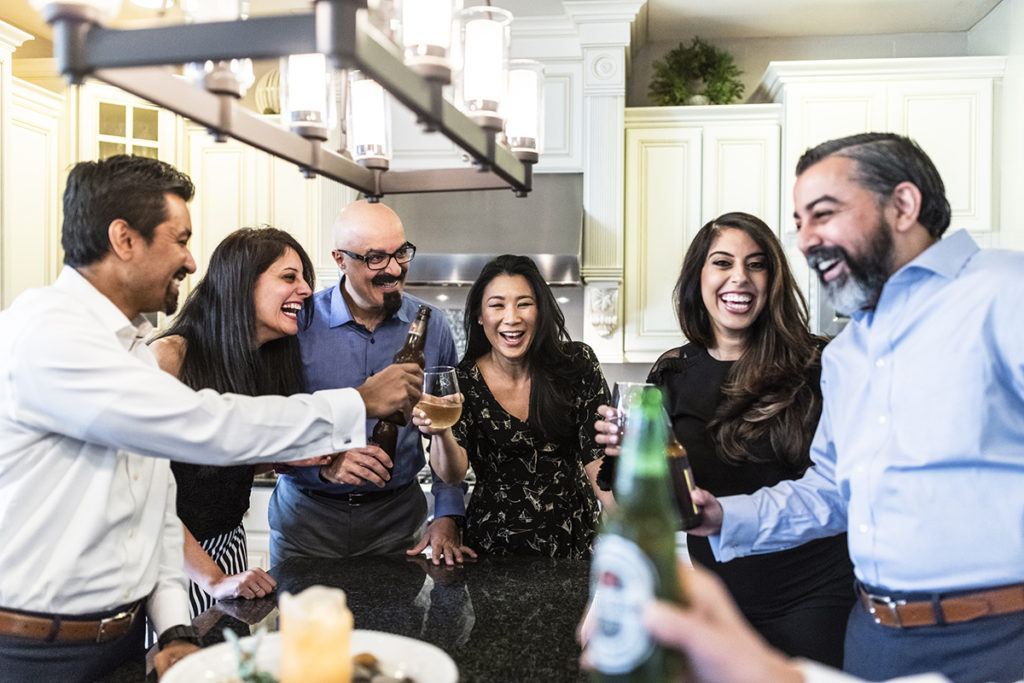
Union of Cultures
It turned out that the challenge of translating and communicating technical concepts into simple English was easier than confronting the cultural challenge of explaining their relationship to their families. Finally, in 2000, Bajwa and Rashaad fully committed to one another, and they realized they had to bring their parents into the fold. The couple promised each other before sharing the news that no matter what happened, they would stick together, even if they were rejected by their families. “We couldn’t let naysayers or fear stop us from doing what we want to do. It was an us-verses-the world mentality, and I told my mom that I thought I was going to marry Rashaad. Her response shocked me. She said, ‘I’m glad you’re finally admitting this.’ We had been sweating it so hard for so long and I was prepared to fight, but there was no fight.
There were still issues and cultural gaps to bridge. When they announced their relationship, Bajwa’s parents knew very little of Pakistani culture or even where to find the country on a map. But as their relationship personally and professionally continued to get stronger, her parents became more inclusive and accepting. “At our wedding, my dad, who is not a public speaker, got up and said, ‘I am so honored to embrace Rashaad as my only son into our family,’” Bajwa recalls. “That was huge. Rashaad was from a culture that my parents had absolutely no exposure to. And even now, after all the things that have happened, 9/11, Islamophobia, all of that, they continue to embrace. They continue to include.”
Rashaad and Bajwa married in 2001, and in the nearly two decades of marriage, the business has thrived, and the pair is raising two daughters and a son; Ava, Zoe, and Max (13, 10, and 7). While she and Rashaad are very close to their families, they make an effort to raise their kids openly, affectionately, and lauding individuality, which is a departure from how they both were raised.
“My parents are such lovely people, but they definitely didn’t tuck me in saying ‘I love you.’ I knew it from their actions. But I’ve turned the corner, and Rashaad is the same way,” she says. “You have to love yourself. We grew up so differently, but I really feel it’s important that they know how to stand up and be honest. It’s not easy, but it makes you an individual of substance.”

